| This blog explores social attitudes in Jane Austen's time, discusses her novels, reviews forgotten 18th century novels, and throws some occasional shade at the modern academy. The introductory post is here. My "six simple questions for academics" post is here. "Bless me! I never could have supposed it. But I live out of the world, and am often astonished at what I hear." -- Mr. Woodhouse in Emma |
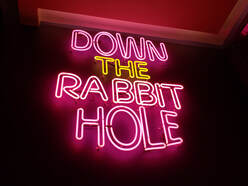
As I pointed out in my article, if the interpretation of the riddle is mistaken, then the interpretation of the novel built upon it is moot. Nevertheless, I will discuss that interpretation to resume an earlier discussion of Jillian Heydt Stevenson's book, Austen's Unbecoming Conjunctions, Subversive Laughter, Embodied History.
Heydt-Stevenson is positing an advanced and subtle degree of allusive meaning in Austen's work. I'm not an expert on the evolution of the novel, but I don't see similar examples of subtle (and I mean subtle) allusion in the novels of Austen's time. There is allegory, yes, and satire, yes, but--well, see if you can follow the extended line of thought that Heydt-Stevenson thinks Austen’s first readers would have followed after they had read the one stanza of the Kitty riddle that appears in Emma...
- they would have recalled the remaining three stanzas of the riddle which don’t appear in the book, and understood that Austen intended for them to think about those omitted stanzas,
- they would have recognized the lines from the remembered second stanza, “from earth he sought the midway air /And soon he clear’d, with dex’trous care, / the bitter relics of my Flame” as a reference to the mercury fumes cure for venereal disease,
- the lines from the third stanza about “willing victim[s] who “bleed,” would have brought to mind children trafficked for sex as a cure for venereal disease. Heydt Stevenson thinks readers will find these references disconcerting but also amusing (this is where her claim of "subversive humour" comes from),
- and having thought of venereal disease and the sexual barter of marginalized people in both a serious and sardonic fashion, the readers would understand that Austen “exposes the patriarchal/heterosexual world of conventional courtship as a dangerous, violent, and even life-threatening arena for both men and women.”
- and once reminded of the dangers of courtship, or rather that courtship in a patriarchal society is merely sexual barter, the readers would see that Austen "dissects the fine line between the marriage market and prostitution."
- further, they would have known that Austen wants us to think about how marriage is like prostitution every time Austen mentions fireplaces or chimneys or heat or cold in Emma.
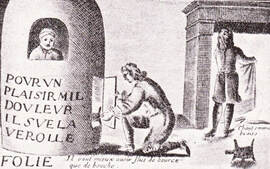 The bitter relics of syphilis cleared with a mercury fumigation stove
The bitter relics of syphilis cleared with a mercury fumigation stove Scholar Alice Chandler explained that “[W]e must be aware of the limited range of explicit statement allowed to a novelist of her generation.” Moving from the bawdier Georgian era to the more “polite” Regency era, Austen could not have sold as many novels as she did if the reviewers of the day deemed them to be coarse or indelicate.
But you could still protest the patriarchy without resorting to vulgarisms. Many writers and artists openly inveighed against the mercenary nature of the marriage market. After all, who could avoid seeing the parallels to prostitution, when marriages between people of property were solemnized not just with a wedding ceremony but with legal negotiations called “marriage articles” which spelled out how much income the groom would settle on the wife and how much money the bride was bringing to the marriage? The novels and plays of the long 18th century were openly contemptuous of arranged marriages, mercenary marriages, and forced marriages. A happy ending in a comedy on the stage consisted of the hero and heroine overcoming the impediments of class, wealth, or parental disapproval which kept them apart.
| …Why did I marry, thus to be despis’d? Why with enthusiast dreams of bliss possess’d? Why did I marry, thus to be oppress’d? Is there, compell’d to groan thro’ loathsome life, A thing so wretched as that slave a wife? Less dire the lot of captives, who sustain The mine’s drear labour, or the pirate’s chain. Ah! to my bonds such fetters would be bliss, Why did I marry such a fiend as this? |
| The dance of death: the wedding by T Rowlandson (1816) Wellcome Collection, Used under Creative Commons Licence (CC BY 4.0) |
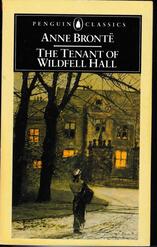 Marital misery
Marital misery A married woman contracts venereal disease from her profligate husband in Anna, or, the Memoirs of a Welch Heiress (1785), and like many novels of the period, we see unhappy marriages depicted, but the heroine's reward at the end of the novel is a happy marriage with the man she loves.
To be fair, however, Heydt-Stevenson is not saying Austen protested mercenary marriages. She thinks Austen was against marriage as an institution entirely. But would it not have been more to the purpose if, instead of quoting one stanza of a riddle, Austen had shown us an unhappy marriage in Emma? Contrasted perhaps with some ideal alternative? If matrimony is bad in itself, what should people do instead? Raise children in anarchist communes? (I do not recall if Heydt-Stevenson sketched out what she, or what Austen, felt would best guarantee female autonomy in the long 18th century).
Other Austen novels portray ill-matched couples such as the Bennets in Pride and Prejudice and the Palmers in Sense and Sensibility. But unhappy couples do not feature in Emma. Mr. Weston's first marriage was not very successful, it's true, but it wasn't because Mr. Weston was a patriarchal ogre, it was because his wife had trouble adjusting to her lower social rank. Frank Churchill's adoptive parents have a dysfunctional marriage but the person causing all the problems is not a patriarchal male, it's a domineering woman. Mr. Elton is not punished with an unhappy marriage. He and his wife are very pleased with themselves. Where is the anti-marriage message? It resides in an "emphasis on heat and cold and figures of Cupid," to remind readers of the Kitty riddle. Snowfall on Christmas Eve, Mr. Knightley drawing away from Mr. Woodhouse's fire--these serve to that remind us that marriage is like prostitution.
I agree Austen couldn't, or wouldn't, plumb the depths of marital misery with the frankness of, say, The Tenant of Wildfell Hall (1848). For one thing, Austen was writing comic novels.
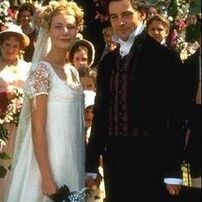 Happily Ever After
Happily Ever After But, as I've mentioned, no one appears to have discovered the message about venereal disease and prostitution prior to Alice Chandler in 1975, certainly not the early reviewer who said “the language [of Emma] is chaste and correct.” The British Critic, and Quarterly Theological Review said: “Whoever is fond of an amusing, inoffensive and well-principled novel, will be well pleased with the perusal of Emma.” After Austen’s death, and her brother’s brief biography of her was published, The Scots Magazine eulogized, “Such was this admirable person, the character of whose life fully corresponds with that of her writings. There is the same good sense, happiness, and purity in both."
Austen was still hoodwinking people in the late 19th century when The Girls’ Own Paper advised that Jane Austen’s novels “may be safely recommended” and the critic Leslie Stephen said there was “nothing improper in [Austen’s] books, nothing which could prevent them from being given by a clergyman to his daughter as a birthday present…”
We might disagree with these assessments; we might smile and shake our heads over the obtuseness of our forbearers, but can we not also ask why Austen’s ostensibly true message about how marriage is like prostitution went unnoticed until our modern critics arrived on the scene?
| Peter Monaghan takes an openly condescending view of genteel Austen fans, describing them as "enraged, self-appointed guardians of Austen-as-exemplar-of-propriety in “With Sex and Sensibility, Scholars Redefine Jane Austen.” He noted, "in academic circles, [Heydt-Stevenson's work] was positively received." Chronicle of Higher Education 2001, Vol.47 (49), p.A.10.A Heydt-Stevenson references the Kitty riddle as significant for readers' perceptions of Mansfield Park as well. Fanny Price’s “very name signifies prostitution: the price of the body." I discuss that here. Previous post: Riddling with the Georgians Next post: Defending Mr. Woodhouse |
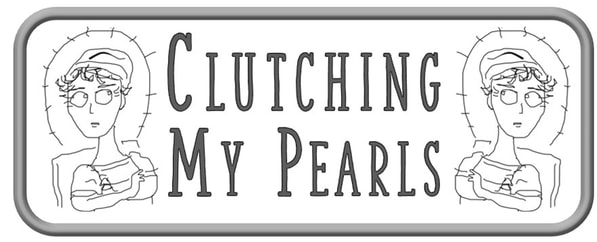
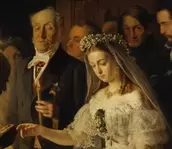
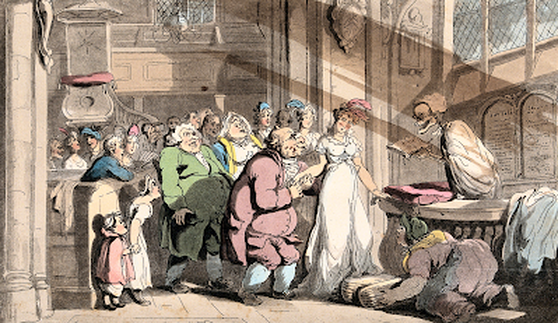
 RSS Feed
RSS Feed